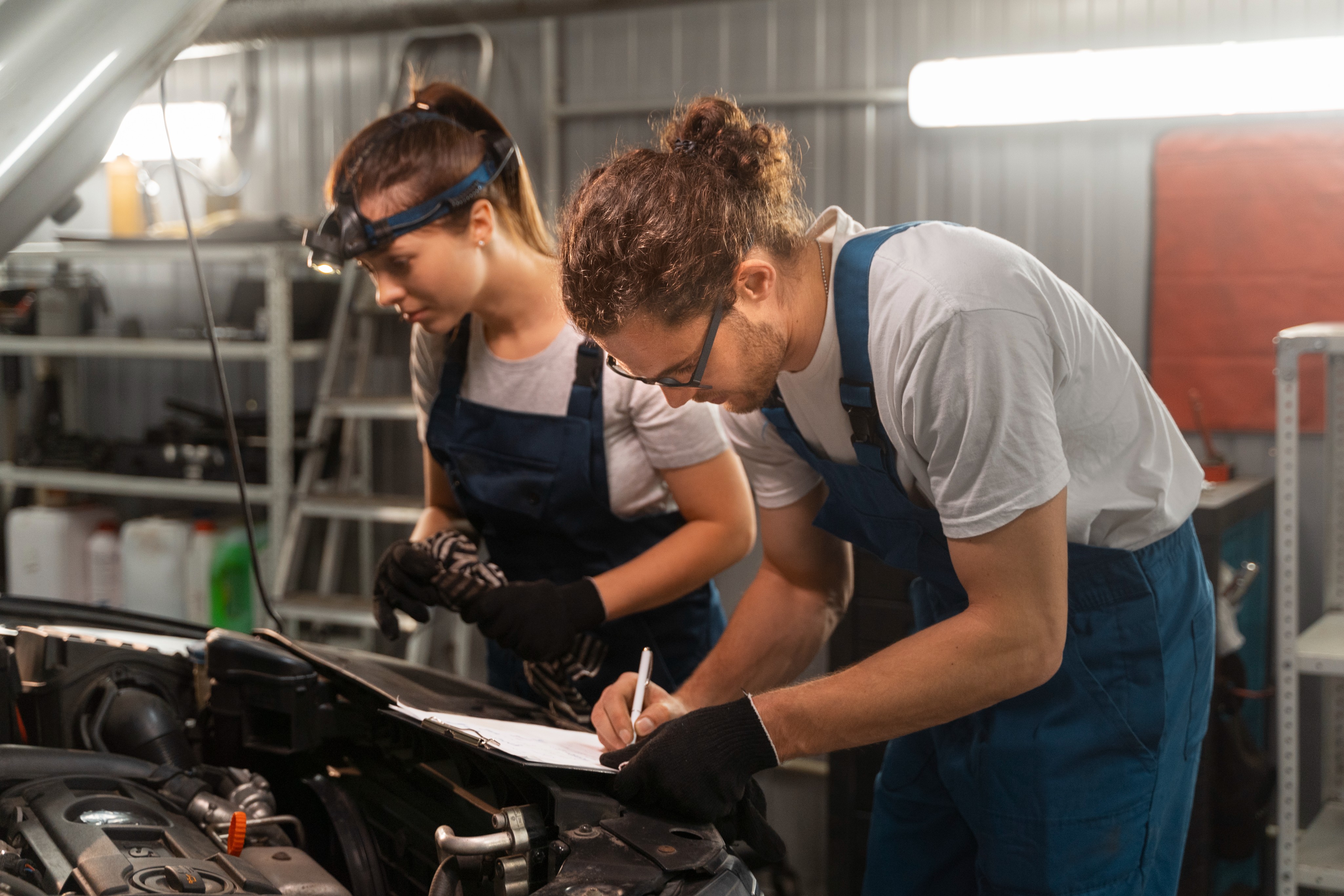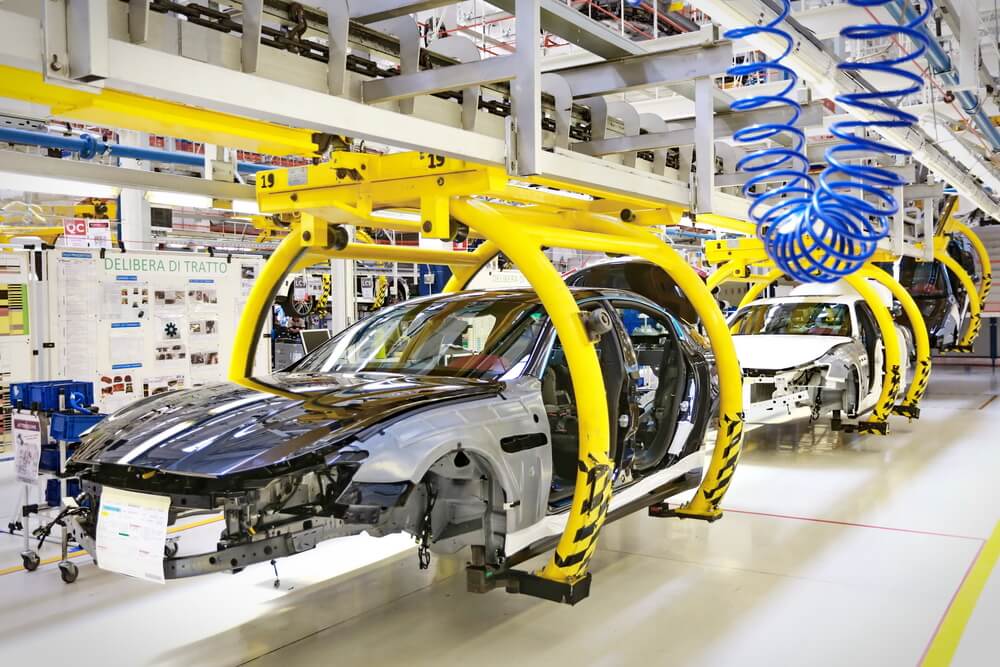
Did you know that the automotive industry in Melbourne employs over 50,000 people and contributes over $21 billion to the Victorian economy? If you are interested in joining this dynamic and rewarding sector, you must have the right skills and qualifications to stand out.
These courses are;
- AUR30620 Certificate III in Light Vehicle Mechanical Technology
- AUR40216 Certificate IV in Automotive Mechanical Diagnosis
- AUR50216 Diploma of Automotive Technology.
They are nationally recognised qualifications that cover a range of automotive skills and knowledge, from essential servicing to advanced diagnosis and technology.
Reputable automotive colleges such as Mars Institute, Kangan Institute offer them. They can lead to various career outcomes, such as light vehicle mechanics, automotive technicians, service managers, diagnostic specialists, or workshop supervisors.
AUR30620 Certificate III in Light Vehicle Mechanical Technology
This course is designed for those who want to work as light vehicle mechanics in the automotive service and repair industry. It covers the skills and knowledge required to perform various tasks on light vehicles such as cars, vans, utes, or motorcycles.
What does it cover?
The course consists of 36 units of competency that include core units such as inspecting and servicing engines, transmissions, braking systems, steering systems, suspension systems, electrical systems, cooling systems, fuel systems, ignition systems, emission control systems, driveline components, tyres and wheels, air conditioning systems, instruments and warning systems. It also includes elective units that allow students to choose from areas such as hybrid electric vehicles, performance engines, and gas fuel systems.
What does it require?
To enrol in this course, students must have completed Year 10 or equivalent with satisfactory results in English and Mathematics. They also need an employer who can provide them with an apprenticeship contract for the duration of the course.
How long does it take?
Individual students’ progress and the method of delivery determine the course duration. Full-time apprenticeships typically take four years to complete.
What does it lead to?
Upon completing this course, students will receive a nationally recognised qualification that enables them to work as light vehicle mechanics in various settings such as dealerships, independent workshops, fleet maintenance organisations, or self-employment. They will also be able to perform various tasks such as inspecting, testing, repairing, and maintaining light vehicles, diagnosing and rectifying faults, using diagnostic equipment and tools, applying safe work practices, and communicating with customers and colleagues.
Examples
Light vehicle mechanical tasks:
- Performing a routine service on a car, including checking and replacing fluids, filters, belts, hoses, spark plugs, and batteries.
- Testing and adjusting the brakes on a van, including measuring the brake pad thickness, bleeding the brake fluid, and adjusting the handbrake.
- Replacing the clutch on a ute, including removing and installing the gearbox, flywheel, clutch plate, pressure plate, and release bearing.
- Troubleshooting an electrical fault on a motorcycle, including using a multimeter, wiring diagram, and test light to locate and repair the problem.
AUR40216 Certificate IV in Automotive Mechanical Diagnosis
This course is designed for those who want to work as automotive technicians or diagnostic specialists in the automotive service and repair industry. It covers the skills and knowledge required to perform advanced diagnostic tasks on various vehicles, such as light vehicles, heavy vehicles, motorcycles, or marine vessels.
What does it cover?
The course consists of 10 units of competency that include core units such as diagnosing complex faults in-vehicle systems, applying safe work practices in an automotive workplace, and managing environmental and sustainability best practices in an automotive workplace. It also includes elective units that allow students to choose from areas such as engine management systems, electronic fuel injection systems, diesel fuel injection systems, ignition systems, emission control systems, braking systems, steering systems, and suspension systems.
What does it require?
To enrol in this course, students must complete AUR30620 Certificate III in Light Vehicle Mechanical Technology or equivalent with satisfactory results. They also need to have relevant work experience in the automotive industry or an employer who can provide them with a suitable workplace for the duration of the course.
How long does it take?
Course duration varies based on delivery mode and student progress. However, a typical full-time course takes about one year to complete.
What does it lead to?
Upon completing this course, students will receive a nationally recognised qualification that enables them to work as automotive technicians or diagnostic specialists in various settings such as dealerships, independent workshops, fleet maintenance organisations, or self-employment. They will also be able to perform various tasks, such as diagnosing complex faults in-vehicle systems, using advanced diagnostic equipment and tools, applying technical data and specifications, interpreting test results and data streams, and recommending and implementing solutions.
Examples
Automotive mechanical diagnosis tasks:
- Diagnosing a misfire on a car engine using an oscilloscope to analyse the ignition waveform and identify the faulty component.
- Diagnosing a poor performance on a diesel truck engine using a scan tool to access the fault codes and live data and identify the cause of the problem.
- Diagnosing a noise on a motorcycle suspension system using a stethoscope to locate the sound’s source and determine the component’s condition.
- Diagnosing a steering pull on a boat using a hydraulic pressure gauge to measure the pressure difference between the left and suitable steering cylinders and identify the cause of the imbalance.
AUR50216 Diploma of Automotive Technology
This course is designed for those who want to work as automotive service managers or workshop supervisors in the automotive service and repair industry. It covers the skills and knowledge required to manage complex automotive operations involving technical leadership, business management, customer service, quality assurance, environmental compliance, and continuous improvement.
What does it cover?
The course comprises 10 competency units covering essential topics, including handling intricate customer service scenarios in an automotive setting, overseeing technical research procedures, ensuring environmental compliance, maintaining quality standards, driving business enhancements, managing financial operations, overseeing human resources, and mitigating risks within the automotive context. Additionally, the program offers a selection of elective units, enabling students to specialise in areas such as hybrid and electric vehicle systems, alternative fuel systems, advanced braking, steering and suspension systems, driveline systems, engine management, and transmission systems.
What does it require?
To enrol in this course, students must complete AUR40216 Certificate IV in Automotive Mechanical Diagnosis or equivalent with satisfactory results. They also need to have relevant work experience in the automotive industry or an employer who can provide them with a suitable workplace for the duration of the course.
How long does it take?
Course duration varies depending on the delivery method and each student’s progress. However, a typical full-time course takes about one year to complete.
Where is it offered?
Several training providers in Melbourne offer this course, such as Kangan Institute, Chisholm TAFE, Holmesglen Institute, Box Hill Institute, Melbourne Polytechnic, RMIT University, Swinburne University of Technology, and Victoria University Polytechnic.
What does it lead to?
Upon completing this course, students will receive a nationally recognised qualification that enables them to work as automotive service managers or workshop supervisors in various settings such as dealerships, independent workshops, fleet maintenance organisations, or self-employment. They will also be able to perform various tasks such as managing complex automotive operations, leading technical teams, overseeing business functions, ensuring customer satisfaction, maintaining quality standards, complying with environmental regulations, and implementing continuous improvement strategies.
Examples
Automotive Technology tasks:
- Managing a hybrid vehicle service operation using a computerised management system to monitor and control the workflow, inventory, budget, staff performance, customer feedback, and environmental impact.
- Leading a technical research project on alternative fuel systems using online databases, journals, manuals, and industry contacts to gather and analyse relevant information and present the findings and recommendations in a report.
- Overseeing a quality audit on an advanced braking system using a checklist, inspection tools, test equipment, and documentation to verify compliance with the specifications and standards and identify any non-conformities or corrective actions.
- Implementing a business improvement process on an advanced transmission system using a problem-solving methodology such as PDCA (Plan-Do-Check-Act) to identify the root cause of the issue, develop and test possible solutions, evaluate the results and effectiveness, and document and communicate the changes.
Conclusion
We have introduced you to three of the top automotive courses in Melbourne for your career advancement. These courses cover a range of automotive skills and knowledge, from essential servicing to advanced diagnosis and technology. Reputable automotive colleges offer them and can lead to career outcomes such as light vehicle mechanics, automotive technicians, service managers, diagnostic specialists, or workshop supervisors.
If you are interested in joining the dynamic and rewarding automotive industry in Melbourne, you must have the right skills and qualifications to stand out. Choosing one of these courses can help you succeed in your chosen field by giving you a competitive edge.



